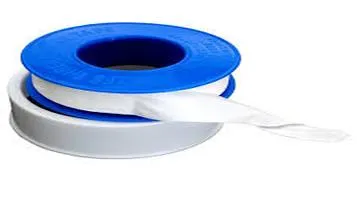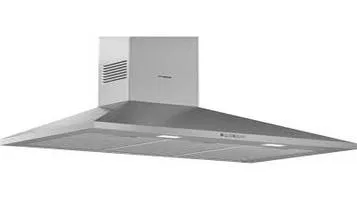Review of Plumber's Tape (Teflon Tape)
Plumber's tape, commonly known as Teflon tape, is a versatile and essential tool in the plumbing industry. Made from polytetrafluoroethylene (PTFE), this thin, white tape is primarily used to seal pipe threads, ensuring a watertight connection and preventing leaks in plumbing systems. Its non-reactive and non-stick properties make it ideal for use with metal, plastic, and rubber parts, providing a reliable seal without hardening or cracking over time. Easy to apply, the tape is simply wrapped around the male threads of a pipe before the connection is made. Plumber's tape is resistant to a wide range of chemicals and temperatures, enhancing its durability and effectiveness in both residential and commercial applications.

Plumber's tape, also known as Teflon tape, is a versatile and indispensable tool in both professional plumbing and DIY home repair projects. This review will delve into the various aspects of Plumber's Tape, its applications, benefits, and potential drawbacks, providing a comprehensive understanding of why it is a staple in toolkits around the world.
What is Plumber's Tape?
Plumber's Tape, commonly referred to as Teflon tape, is made from polytetrafluoroethylene (PTFE), a synthetic fluoropolymer. It is typically thin, white, and sold in rolls. The tape is non-adhesive, meaning it doesn’t stick to surfaces like traditional adhesive tapes; instead, it works by creating a seal when wrapped around the threads of pipe joints.
Applications
The primary use of Plumber's Tape is to create a watertight seal on threaded pipe joints. It is commonly used in a variety of plumbing applications including water supply lines, showerheads, and pipe connections. Additionally, it is also employed in gas pipe connections, though specific types of Teflon tape designed for gas lines, usually yellow in color, should be used.
Beyond plumbing, Teflon tape finds utility in various industries such as automotive, aerospace, and even in some DIY electronics projects, thanks to its insulating properties.
Benefits
1. Ease of Use: One of the standout features of Plumber's Tape is its simplicity. Even novice DIY enthusiasts can use it effectively. It requires no special tools—just wrap it around the male threads of the pipe in a clockwise direction and screw the pipe into place.
2. Versatility: Plumber's Tape can be used on a wide range of pipe materials, including metal and plastic, making it highly versatile. It is compatible with most pipe threads used in residential and commercial applications.
3. Leak Prevention: By filling the gaps between the threads and creating a tight seal, Teflon tape effectively prevents leaks. This is especially crucial in plumbing systems where leaks could lead to water damage or mold growth.
4. Corrosion Resistance: PTFE is chemically inert and resistant to most forms of chemical corrosion. This makes Plumber's Tape an excellent choice for sealing connections that may come into contact with corrosive substances.
5. Temperature and Pressure Tolerance: Plumber's Tape can withstand a wide range of temperatures and pressures, making it suitable for both hot and cold water systems as well as some gas lines.
6. Cost-Effective: It is relatively inexpensive and available in various lengths and widths, allowing users to purchase the right amount for their specific needs without overspending.
Drawbacks
1. Not a Permanent Solution: While Teflon tape is excellent for creating a seal, it is not a permanent fix. Over time, the tape can degrade, especially in high-pressure or high-temperature environments, which may necessitate periodic reapplication.
2. Compatibility Issues: Not all types of Teflon tape are suitable for all applications. For example, standard white Teflon tape should not be used for gas lines; instead, yellow Teflon tape is recommended. Using the wrong type can lead to safety hazards.
3. User Error: Incorrect application can result in leaks. If the tape is not wrapped tightly or in the correct direction, it won’t create an effective seal. Additionally, if too much tape is used, it can cause pipe threads to become misaligned or even crack.
4. Not Suitable for Certain Applications: Plumber's Tape is not ideal for non-threaded pipe connections or for sealing connections that will be exposed to extreme physical stress.
Conclusion
In summary, Plumber's Tape, or Teflon tape, is a quintessential tool for anyone involved in plumbing or various other repair tasks. Its ease of use, versatility, and effectiveness in preventing leaks make it an invaluable asset. However, it is essential to use the correct type of tape for specific applications and to apply it properly to ensure a secure seal.
While it may not be a permanent solution and has some limitations, the benefits it offers far outweigh the drawbacks. Whether you are a professional plumber or a DIY enthusiast, having a roll of Teflon tape in your toolkit is a wise decision. It’s a small investment that can save you from significant headaches down the line, making it an essential component in maintaining the integrity of any piping system.






